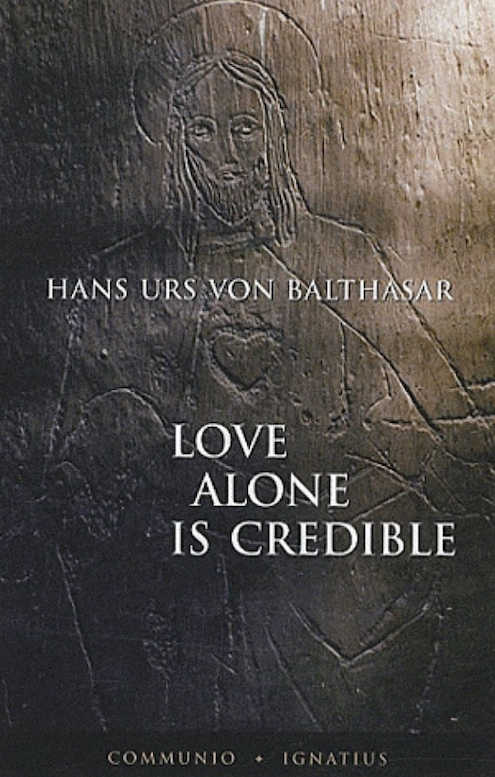
Do you ever dread meeting with a friend? Do you involuntarily find yourself imagining the ways this is going to go all wrong? Do you feel a knot in your guts when you receive a text message asking to “connect” later (why that word?) and zero elaboration is given? You feel the foreboding circulate through your veins, vaguely sensing that something unpleasant is in store, and can’t concentrate on anything else in the meantime. This can’t be good. If this sounds familiar, then you’ve probably been on the receiving end of a sucker-punch of soul-care at least once before. Because that low-level panic doesn’t come from nowhere—it arises out of firsthand familiarity with poorly handled ministrations.

However well-intentioned they are, it seems like most harder-edged interventions fail at what they set out to do. Many times the matter that’s provoked this convening is so insignificant it’s hard to feel you can trust their judgment for the conversation they want to have. Other times it’s more substantial, but that underlying trust still isn’t there that allows you to be truly vulnerable. Part of the problem is these things regularly aren’t conversations at all: they’re monologues you’re invited to subject yourself to. Despite the plea to remember that this is “for your good,” you never feel at ease, never feel safe engaging the barrage of questions and accusations pummeling your position. Because every qualification you make is interpreted back to you as recalcitrance, as sinful obduracy: you’re told you obviously don’t know what’s best, or we wouldn’t be having this conversation.
It isn’t always as harsh or supercilious as this, but it seems like most instances you can recall fall on that side of the dial rather than the consoling-and-constructive side. “Care” isn’t the word that comes to mind—it feels more like being pinned down and administered a priorly arrived-at judgment, not the organic outcome of a genuine, grace-imbued dialogue.
Sometimes we only begin to grasp just how cruel this type of intervention can really be when we find ourselves not dealing it out but when the blindfolds have been fixed over our eyes and our backs are against the wall. This is shattering, not only when minute, petty grievances are cause for the occasion, but even in those times when we genuinely are at fault.
But what if there’s no question that what happened was wrong? What if there’s no pretense of innocence? Doesn’t that count for something? Shouldn’t that temper what follows? And yet when a line—this far, and no further—is perceived as having been crossed, we are prompt to besiege our friend with ordnance that screams their blameworthiness. We call in that airstrike and jam their communications. No words edgewise, no input allowed; “but do you deserve this?” seems to be the operative question guiding so many of these scenarios.
 The impulse to acknowledge one has done wrong and yet to help them move past that wrongdoing is uncommon in many of our churches, the very place in society where this mode of gospel proclamation ought to be taking place. What seems to be the norm instead is a grinding-down that holds off on assurances of God’s love or promises of his saving help. To get there, first, as the accused, you must absorb every molecule of your friends’ diatribe, and then, if you stick with their “tough love” for long enough, answer their rhetorical questions the way the script directs you to, then you are thrown scraps of gospel from the table. It’s as though bringing those things to bear upon the situation is a risk they’re unwilling to take. Be “lenient” too soon and there’s no hope of making him feel sufficiently awful.
The impulse to acknowledge one has done wrong and yet to help them move past that wrongdoing is uncommon in many of our churches, the very place in society where this mode of gospel proclamation ought to be taking place. What seems to be the norm instead is a grinding-down that holds off on assurances of God’s love or promises of his saving help. To get there, first, as the accused, you must absorb every molecule of your friends’ diatribe, and then, if you stick with their “tough love” for long enough, answer their rhetorical questions the way the script directs you to, then you are thrown scraps of gospel from the table. It’s as though bringing those things to bear upon the situation is a risk they’re unwilling to take. Be “lenient” too soon and there’s no hope of making him feel sufficiently awful.
There are a lot of people who place a premium on this type of truth-telling, the type which pulls no punches in itemizing and citing precisely what’s wrong with you. ‘To do less than that is to be unloving’ is the claim by which they justify this, and it’s understandable up to a point. A friend tells you the truth—of that there can be no doubt. The problem with this is the fact that this is exactly what the Devil does as well. Yes, he’s called the Father of Lies for a reason, but it’s not because the only words that leave his lips are falsehoods. What he is exceptionally skilled at is weaponizing the truth against you.
This may be surprising to some, but brutality is not a prime indicator that your love for your friend is genuine. You may sincerely want what is best for him or her, but that desire in the abstract does not inherently link up with a certain comprehension of what that “best” is, concretely. That’s a posture to hold, not a definitive object of knowledge known from the outset. In other words, your wanting what’s best for your friend is not a sufficient condition for knowing what it actually is. You cannot pole-vault over the grace of listening and processing to arrive at a ready-made, known-before-the-fact solution. And letting your friend have it won’t speed that process up one bit; you’re more likely furthering the ambitions of the Accuser rather than administering the love of God in Christ.
Job’s “friends” were possessed of a piety which was, in truth, an ideology: Eliphaz, Bildad, and Zophar would countenance no inquiries or counterproposals to their ironclad theology of merit and retribution. However much Job may protest to the contrary, obviously he deserved all that had come his way. How fitting, then, that in one production of the play J.B. (based on Job’s ordeal) the three friends and Eliphaz and various others are revealed at the climax as mouthpieces of Satan. In his We Find Ourselves Put to the Test: A Reading of the Book of Job, James Crooks describes how these actors are made up so that half of their faces accord with their credited character (Eliphaz, Bildad, etc.), but the other half is made to mimic the make-up of Satan. The revelation near the end of the play as each character pivots and points an accusing finger at the exhausted Job is that all of them speak for and as the Devil.

There is one, however, who is exalted above all yet nevertheless reaches out to ruined sinners in friendship. That one is Jesus Christ, and he is full of grace and truth. I don’t think that the conjunction “and” in that phrase merely denotes how both qualities are present in him: it seems to me that this is a substantive linking of the two. The two belong together and mutually define one another in the concept “grace and truth.” That is, “grace” is not grace apart from the truth of who and what we are, but “truth” likewise is less than the truth when it isn’t conditioned by grace. That is, you are not telling the truth if you do not speak grace into whatever circumstance compels you to speak.
This isn’t about pandering to people we like or letting them off the hook for what they’ve done. It’s about not letting the “Yes” God speaks to every son and daughter of Adam be obscured by the “No” he speaks to our sin. God’s “No” is the hasp opening onto his steadfast love; it houses the “Yes” we all need to hear. Too often, however, it’s treated as the preliminary word that must be said, the response to which determines whether or not the “Yes” is subsequently given. But the “No” and the “Yes” do not have to be spoken in sequence, and the “No” is never directed to the person.
Shorn of grace, the truth is the Enemy’s. How easy is it to wield the truth to destroy? We are all so primed to fall apart upon hearing what we fight so hard to conceal from ourselves all it takes is a sentence to undo us. The truth is far more effective in unravelling us than lies are.
But the truth is also vastly more effective, vastly more beneficial for us than lies. Lies may flatter us but they leave us in the exact same place, stuck in the same patterns that have held us back or held us down. The truth is, God is for us. His “Yes” is the most fundamental thing he has to say to the world of disappointments amongst whom we dwell, and are ourselves.
 On the shore of the Sea of Galilee, our Lord prepared a meal for his disciples, and after eating, dealt with the sin of their spokesman. But he didn’t humiliate or crush this man. He didn’t draw him out into the center of the circle and castigate him for his notorious failure. Simon Peter wasn’t singled out for a verbal clobbering or made an object lesson to his friends: “Look at him. This right here is exactly what we must be better than.”* No, our Lord met Peter at the most knotted point of his own shame and self-loathing to heal him. Not batter him with a parody of love, but to truly, truly heal him.
On the shore of the Sea of Galilee, our Lord prepared a meal for his disciples, and after eating, dealt with the sin of their spokesman. But he didn’t humiliate or crush this man. He didn’t draw him out into the center of the circle and castigate him for his notorious failure. Simon Peter wasn’t singled out for a verbal clobbering or made an object lesson to his friends: “Look at him. This right here is exactly what we must be better than.”* No, our Lord met Peter at the most knotted point of his own shame and self-loathing to heal him. Not batter him with a parody of love, but to truly, truly heal him.
“Simon,” the Lord of All asked, “do you love me?” Once, twice, both answered by Peter: “Yes, Lord; you know that I love you.”
But then the third time. “Simon, do you love me?” Peter winces at the pain of affirming once again, knows he has denied this same man he esteems as friend and master this exact number of times, and the memory is like shards of glass in his mouth. So he protests in his love, “Lord, you know everything”—through sobs, undoubtedly—“you know that I love you.”
But Jesus hasn’t repeated his question three times to shame the already shamed and devastated Peter. The Lord of All doesn’t then direct the other disciples to determine whether he is being sincere or if he has sufficiently made up for what he has done. Jesus has recapitulated Peter’s failure so as to cancel it out and replace it with the truth. Three times Peter denied his Lord; three times he affirmed his love. “Look at this man,” Jesus is telling the disciples gathered there, and to all of us coming long afterwards, “this is the man who loves me. You’ve heard it yourself. And he is going to stick it out to the very end. I know it, and now you all do as well.”
This is who Love is, and this is what he does.
“The decisive thing,” Hans Urs von Balthasar wrote in Love Alone Is Credible, “is that the sinner has heard of a love that could be, and really is, there for him; he is not the one who has to bring himself into line with God; God has always already seen in him, the loveless sinner, a beloved child and has looked upon him and conferred dignity upon him in the light of this love.” The loveless sinner may be bruised and battered by his friends, but he is always already the object of God’s compassion, and always has a home to return to in Christ, regardless of what he has done.
So be a friend—be a channel of that same compassion. Your friend probably already knows the truth about themselves, about what they’ve done. They don’t need the hammer swung down upon them. And if they are in denial, they won’t be coaxed out of their cave by fire-storms of vehemence. Only love can truly woo any of us out of the husk of our living death and into the light and life of Jesus Christ. Do for others what you would beg for yourself, and shame the Devil by embracing the sinner in the grace of God in Christ.
And if you are the recipient of botched love, then yes, be merciful so far as you are able to. But if the environment you’ve been a part of is congenitally averse to Mark 2:17 and the theology of the cross, there is little else to do. Embrace Christ’s friendship in the gospel and seek out saints who manifest that same love, who embody the love he holds out to you. Not flatterers who will pretend you are without faults, but brothers and sisters who remember they, too, are dust, and are always in the wrong—brothers and sisters who will speak God’s “Yes” to you, again and again and again. May we all find such graced friendship. Amen.
*My thanks to Scott Cunningham for the substance of this sentence.

COMMENTS
3 responses to “When Your Friends Are the Devil”
Leave a Reply













Ian, thank you for this wonderful post! In my college days, we called these interactions “care-frontations.” Lol. Can’t think of a single instance that went well despite best intentions.
And I have long loved “JB,” but it is perplexing. What’s the production you’re referencing? I’d love to look into it/hear more of your thoughts on it. And I really appreciate your interpretation of Jesus’ exchange with Peter—enlightening!
Words fail me. Tears. Thank you, thank you so much for this!
Wendy, you are so very welcome! I’m so happy this could do something for you!